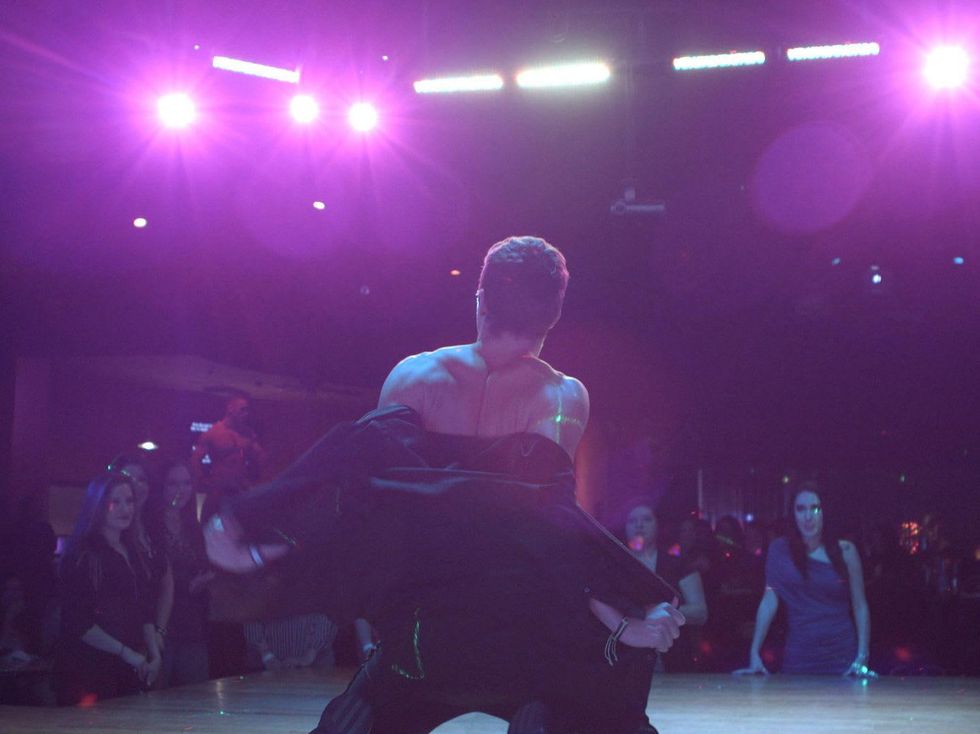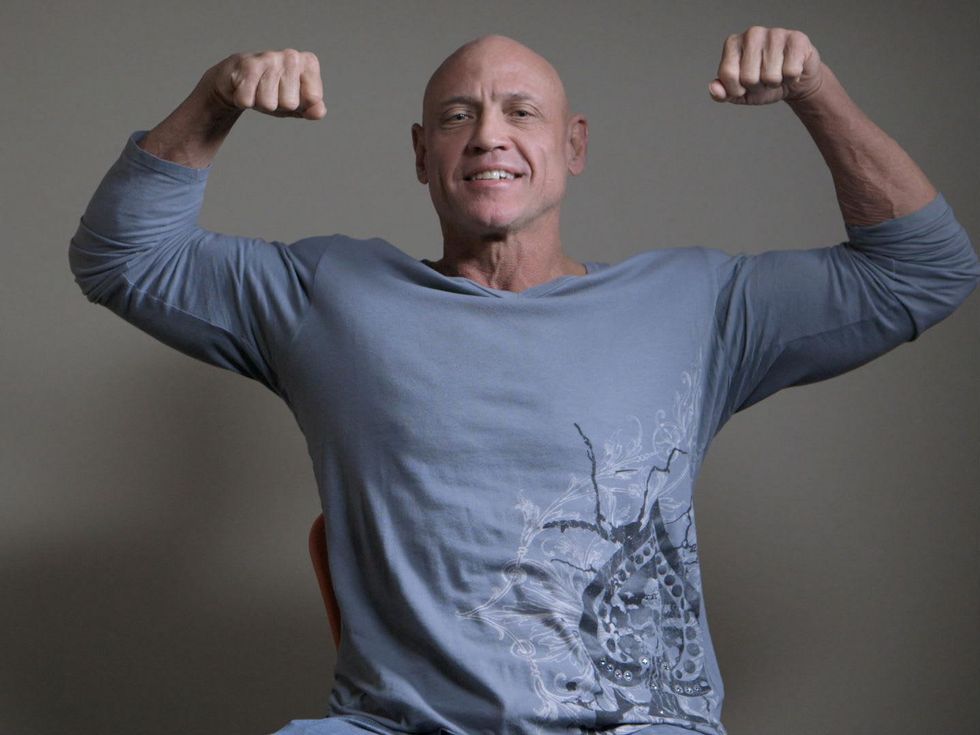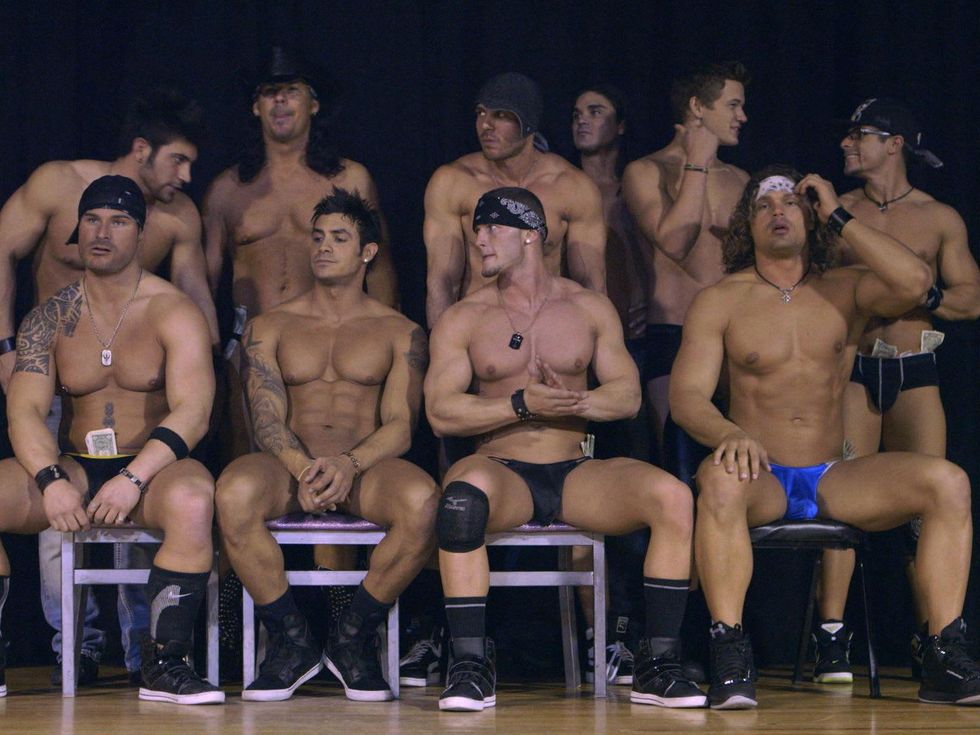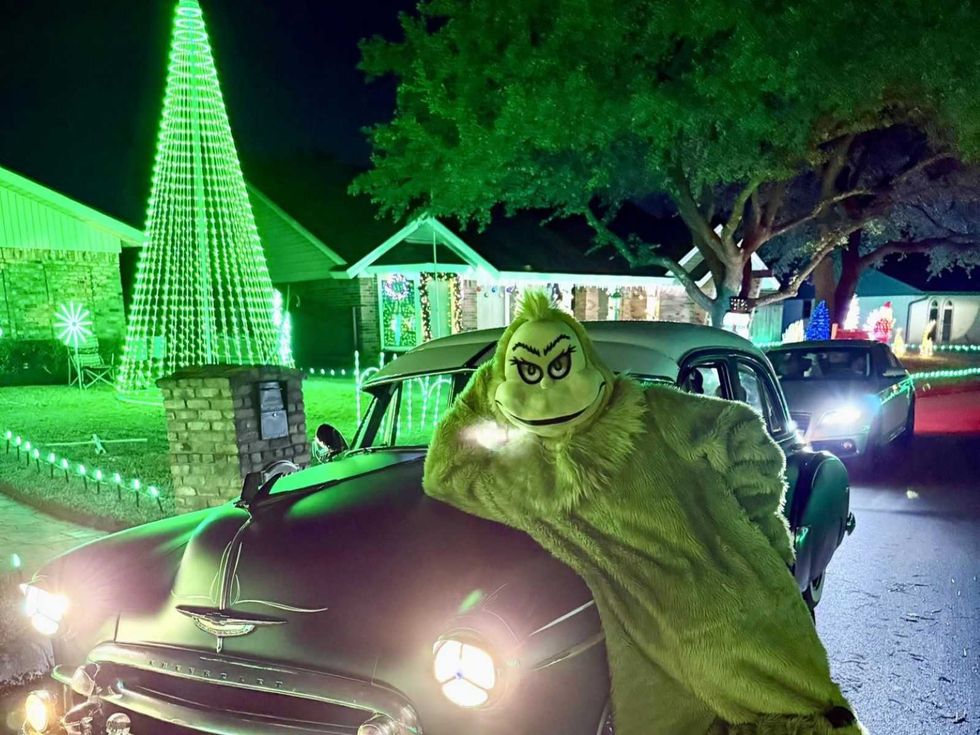There's no better family holiday tradition than piling in the car and looking at Christmas lights.
Dallas and its suburbs are full of homes and neighborhoods decked out in dazzling displays, from coordinated cul-de-sacs to mansions that rival amusement parks.
Here's where to find the best homes and neighborhoods for Christmas lights in 2025. New this year: A whole section devoted to homes that have competed on ABC's hit reality competition show, The Great Christmas Light Fight.
Many of these displays will remain on through at least New Year's Eve, giving families an extra week to scout the sparkle-and-shine.
By the way, there are a lot more lights to see and experience this season. For the Ultimate Guide to 2025 Christmas Lights around Dallas, including drive-through and immersive attractions, go here. For the best lights around Fort Worth, head here and here.
Neighborhood displays
'12 Days of Christmas,' Timberhollow Circle, Dallas
"The 12 Days of Christmas" come alive on Timberhollow Circle in Lake Highlands Dallas. The display has been a tradition since the lat 1980s. Each home is decorated as one of the days, from a partridge in a pear tree to 12 drummers drumming. The entrance is located one block south of Royal Lane off Abrams Road on Moss Haven Drive, 75231. The lights stay on nightly until 11 pm through at least the end of December.
Deerfield Holiday Lights, Plano, December 1-30
The Deerfield subdivision of northwest Plano hosts a magical winter wonderland visitors can drive, walk, or ride a carriage through. The homes throughout the community dazzle with creative themes (such as "Elf Town," which competed on The Great Christmas Light Fight on December 18), twinkling lights, and larger-than-life displays. Deerfield is located between Preston Road and Coit Road. Check the website for maps and important information about traffic flow and parking. The free event runs 7 pm-10 pm on weekdays and 7 pm-11 pm on weekends.
Interlochen Lights, Arlington, December 13-25
The Interlochen neighborhood in northwest Arlington celebrates the 50th anniversary of its annual Interlochen Lights presentation. More than 200 homes get decked out in lights and holiday-themed displays each year, and this time there'll be special designation for those that have participated all 50 years. The event allows guests to drive through the neighborhood for free and pick out favorite displays while they tune into holiday music in the car. The Interlochen Estates map is here. The lights are on nightly from 6-11 pm; watch for 2025 updates on their website and Facebook page. For tips on where to enter and more, go here.
 Christmas lights in the Interlochen neighborhood will only be on until Christmas. Photo courtesy of the City of Arlington
Christmas lights in the Interlochen neighborhood will only be on until Christmas. Photo courtesy of the City of Arlington
Glenbrook Christmas, Bedford, through December 31
A tradition nearly four decades strong, the Glenbrook subdivision in Bedford lights up nightly to tell the story of "It's the night before Christmas, in Texas That is" - along with other festive displays. The entrance to Glenbrook is on Brookside Drive located between Cummings and Forest Ridge (look for the red lights lining the streets). Cars can drive through the neighborhood for free nightly, 6-10 pm. Follow on Facebook or Instagram for updates.
Diamond Loch, North Richland Hills, through January 1
Adjacent houses on a cul-de-sac join forces to present a massive computerized show. The rest of the street presents a fun "Whoville" Christmas experience known as #NRHGrinchLights. They grow the show every year, and The Grinch himself may actually pop in occasionally; follow their Facebook page to keep up. It's open daily, 5:30-11 pm. To find it, navigate to the address 6217 Windsor Ct., NRH, 76180. Be sure to follow the designated traffic flow through the neighborhood.
 The Grinch might just greet you at\u00a0Diamond Loch in North Richland Hills. Facebook/Diamond Loch news
The Grinch might just greet you at\u00a0Diamond Loch in North Richland Hills. Facebook/Diamond Loch news
Regents Park Luminary Event, McKinney, December 20-21
Residents of this Stonebridge Ranch neighborhood hand fold over 2,500 paper bags each year and line the streets and central park area with luminaries for families to enjoy. Visitors can drive or walk through streets lined with traditional luminaries and enjoy the Christmas lights that adorn the Craftsman-style homes. For updates, follow the Facebook page. Runs 6-9 pm December 20-21 only.
Morrisdale Estates, Euless
It's been said that holiday decorating in the Euless neighborhood of Morrisdale Estates is a competitive sport. The Morrisdale tradition is for everyone in the neighborhood to put up the same red lights on their curbs to create a sea of red as you drive through the neighborhood. Bonus that it's still a bit of an undiscovered gem, so there's not as much traffic as other neighborhoods. Find the neighborhood between Pipeline Road and Hurst Blvd., 76040.
Windsor Way Christmas, Rowlett, through December 31
Neighborhood presentation consists of 29 homes with small and large displays, synched to music that can be listened to in the car. A map on the event Facebook page suggests how to see them all in one night. The lights are on 6-10 pm through New Year's Eve.
Homes featured on 'The Great Christmas Light Fight'
Elf Town, Plano, through December 31
David and Melissa Loder have been turning their home in the famous Deerfield neighborhood into a magical "Elf Town" since 2011, and they stepped into the national spotlight when they competed on ABC's The Great Christmas Light Fight on December 18. The DIY display includes an Elf Disco, Elf Tavern, Elf School, Elf Museum, and new this year, "Santa's Spa" for relaxation in the backyard. Their display also helps raise money to fight breast cancer through the Susan G. Komen Foundation. Find Elf Town at 4641 Penbrook Ct., Plano. It's open nightly, 5:30 pm-midnight, through December 31. Follow the Elf Town Facebook page for updates.
 David and Melissa Loder's Elf Town is on Penbrook Court in the Deerfield subdivision of Plano. Photo courtesy of David and Melissa Loder
David and Melissa Loder's Elf Town is on Penbrook Court in the Deerfield subdivision of Plano. Photo courtesy of David and Melissa Loder
The Gift of Light, McKinney, through January 1
This wonderland in McKinney competed on Great Christmas Light Fight in 2024. It has a little bit of everything: dazzling lights, inflatables, wireframe items, yard art, an entire section devoted to nativities, plus Santas and reindeer, polar bears and penguins, Disney characters, and more. The "gift" is that they raise money for the American Heart Association, and the story behind their effort is very personal. The lights go on 6:30-11 pm through New Year's Day. Find it at 8624 Palermo Way, McKinney.
Burkman Holiday Home, Frisco, through December 31
A 2021 alumni of ABC’s The Great Christmas Light Fight, the Burkmans’ home is one of the most famous Christmas-light attractions in the area. It features nearly 115,000 lights, animatronic figures, special “character” photo nights, and more. They also collect new/unwrapped toys for the The LiyanaStrong Foundation and charitable donations for a scholarship fund. Open nightly December 1-31, but closed the first three Mondays and Tuesdays in December and for inclement weather. Hours are on 5:30-11 pm nightly. Check the Facebook page for updates on character nights and more.
 Burkman Holiday Home of Frisco. Photo courtesy of Burkman family
Burkman Holiday Home of Frisco. Photo courtesy of Burkman family
Stay in the Light, Rockwall, through December 25
Homeowners Brenda and David Hughes have strung more than 150,000 lights outside their home in a festive display. They call it "Stay in the Light" in memory of their son, Nathaniel, who suffered from depression and passed away in 2019 at the age of 29. They'll competed on Great Christmas Light Fight in 2024. The couple accepts donations for Meals on Wheels Senior Services of Rockwall County plus blankets, socks, and toys to a local children’s hospital. The lights are on nightly, 6-10 pm. 1655 Plummer Dr., Rockwall, in The Shores neighborhood.
Mach Christmas Display, Ennis
The Mach family's epic 3.5-acre Texas-themed display is a walk-through attraction that uses half a million lights, 200 inflatables, and more to depict 40 cities across Texas. They battled on The Great Christmas Light Fight in 2024 (still available to stream on Disney+). The display is open on select nights through the holiday season, typically 6:30-9:30 pm Thursday-Saturday and 6:30-9 pm Sunday, but follow their Facebook page for the schedule and more information. Special events include Disney Night (December 6), Military and First Responders Night (December 11), and Special Needs Night (closed to the public, December 18). The address is 171 FM1183, Ennis, 75119. Follow the directions at the pin on Google Maps.
More homes with over-the-top lights
'Viral Dallas House,' 6215 Deloache Ave., Dallas, 75225
The 9,000-square-foot Preston Hollow mansion that went viral for its Disneyland-big display, jam-packed crowds, angry neighbors, and traffic control last year is back at it with a "Grinch" themed display for 2025. Stunning white lights cover the house and shimmer like diamonds, and a rainbow of light extends to the yard, where Grinch inflatables stand guard. Social media users have called it "Dallas' most viral Christmas house." Search the address on Facebook and you'll see why. They have no official social media presence; they don't need it as everyone else in the city is posting about this house. Tips to avoid an hour-long drive down the street: 1) Go on a weeknight, 2) Park at and patronize a nearby restaurant for dinner and walk over. Be sure to explore other beautifully decorated homes while you're in the Park Cities.
Santa House, University Park
Once hailed "the single best Christmas light display in Dallas," this perennial favorite fills the front lawn with hundreds of lighted blow-mold decorations that homeowner Wayne Smith has amassed over the years. But look up — way up to the roof — and you'll find his distinctly "Dallas" touch: the head of the State Fair's very first Big Tex, restored to his original form as St. Nick in 1949 and donning a Santa hat. Find it nightly at 3629 Southwestern Blvd., Dallas.
The Movie House, Allen
This Allen family home turns into a theater, showing highlights from favorite holiday classics like Christmas Vacation, Elf, A Christmas Story, Home Alone, Love Actually, Die Hard and more - all set to music and over 10,000 lights. Guests can also snap a pic in front of a 6-foot star that makes everyone part of the action. The 15-minute show starts on the quarter hour every night from 6-11 pm and runs Thanksgiving through New Year’s Day.. 1600 Wagon Wheel Dr., Allen.
Lights on Oak Bluff, Sachse
This fantastic lights display consistently wins awards from the City of Sachse and the neighborhood HOA. Expect 14,000 individually computer-controlled lights, dancing animatronics, yard decorations, and synchronization to music. The show runs 6-10 pm nightly, at 4310 Oak Bluff Ln., (in the Woodbridge subdivision) Sachse, 75048. Follow their Facebook page for updates.
The Browne Family Holiday Light Show, Parker
This family has a tradition of turning their home into a destination. The Browne Family Holiday Light Show is a full light show synchronized with music taking place throughout the Christmas season. While the show is free, it is an official drop-off point for Toys For Tots; visitors are encouraged to bring a new, unwrapped toy to donate. The show runs from dark to 9 pm Sundays through Thursdays, and dark to 10 pm on Fridays and Saturdays, at 2701 Dublin Park Dr. (in Dublin Park Estates), Parker. Runs through January 4.
Kody's Stunning Light Show, The Colony, through January 1
A festive light show synchronized to 30 minutes of holiday music. The experience includes a new candy cane display offering free candy canes, plus a post box for letters to Santa. The show runs nightly, 6-10 pm. Find it at 5618 Foster St., The Colony.
Wood Family Christmas Light Show, Mansfield, through December 31
A family home plays a 30-minute light show coordinated to music featuring traditional and pop holiday music; this year's playlist includes "Magic" by Lindsey Stirling and David Archuleta; "Believer" by Imagine Dragons; "Stretchy Pants" by Carrie Underwood; "Uptown Funk" by Mark Ronson and Bruno Mars, and more. Tune in to 88.9 FM in the car to follow along. The show runs nightly, 6-10:30 pm. Find the home at 2201 Hodges Place, Mansfield. Follow their Facebook page for updates.
More recommended homes:
- 1068 James Ct., Allen. Light show featuring beams and an animatronic snowman. 6-10 pm nightly.
- 1006 Twin Creeks Dr., Allen. Light show synched to music. 6-10 pm nightly until Christmas.
- 8132 Lost Maple Dr., North Richland Hills. Synchronized lights show that runs 5:45-10 pm daily.
- 5500 Montclair Dr., Colleyville. Famous "red tree" that can be seen from down the street.
- 3612 Woodcrest Dr., Colleyville. Yard has lit-up trees and characters.
- 7112 Four Sixes Ranch Rd., North Richland Hills. Thousands of lights, decor, and a mailbox for letters to Santa; runs 5 pm-1 am. nightly.
- 7312 Bursey, North Richland Hills. "Christmas on Bursey" includes a jukebox to pick songs and letters to Santa. Runs 5-10 pm Sunday-Thursday, 5-11 Friday-Saturday.
- 2712 Creekwood Dr., Grapevine. Lights show synched to music.
- Fallbrook Court at Bridge Street, Colleyville. Coordinated neighborhood display with lights and characters.
- 9945 CR 1006, Godley. "The Griswolds of Godley" run a synchronized music-and-lights show 6 pm-midnight Sunday-Thursday, 6 pm-1 am Friday-Saturday.
- 1800 Creek Bend Dr., Corinth. 45-minute lights show synched to music. 5:10-11:30 pm nightly.
- 2817 Sun Meadow Dr., Flower Mound. Walk-through lights attraction.
- 6301 Tuckers Place, Rowlett. Over-the-top display that includes light beams.
Ticketed events on family properties
Miracle on 134th Street, Celina, November 26-December 27
A Celina family has turned their expansive property into a holiday amusement park, complete with over 1 million lights illuminating walking trails, a train, carousel ride, Santa's workshop, Mrs. Claus’ bakery, petting zoo, and much more. Earlybird tickets start at $22.99 for adults; $17.99 for kids 3-12, with season passes available and free on-site parking. It runs 5:30-9 pm nightly. Find it at 10455 County Road 133, Celina, 75009. Follow the Facebook page for updates on special photo ops and more.
Frostival at Howell Family Farms, Arlington, November 29-December 28
For more than two decades, the Howell family has opened the gates of their farm to share the joy of Christmas with the community. Step into a glowing twinkling light trail, "fire & ice" show, festive music, Santa and his reindeer, a 200-foot holiday slide, hot cocoa, crafts, and photo opps galore. The attraction is open nightly, 5:30-8 pm. Tickets run $19-$24 for guests age 12 and up; $14-$16 for kids age 4-11; and a VIP experience for $30-$40. Find Howell Family Farms at 4016 W Division St., Arlington.
Reliable neighborhoods with pretty lights
The Park Cities
The stately homes in the Park Cities neighborhoods of Dallas dress up with beautiful light displays; pick just about any street where you see houses lit top to bottom in twinkling lights, and there are bound to be a dozen more. Don’t miss Highland Park Village and its 1.5 million lights, and be sure to drive down SMU’s Bishop Boulevard, toward the fountain and back.
Kessler Park
Historic Kessler Park features twinkling holiday lights on grand old homes and majestic trees against a backdrop of the Dallas skyline. The holiday decorations are coordinated on various traffic islands in the neighborhood each year. From downtown Dallas, go west on Interstate 30. Take the Sylvan exit, turn south on Sylvan, drive about a half a mile, and turn west on Colorado.
Elderoaks Lights, Oak Cliff
A Dallas tradition more than three decades strong, Elderoaks sees 96 percent of its homes participate in an impressive display. Located along three streets just south of the old Oak Cliff Country Club (Elderoaks Lane, Elderleaf Drive, and Elderoaks Place), the neighborhood scenes celebrate Christmas with homemade decorations that span medieval times to present day. Don't miss the streaming show of Christmas carols. There's no fee to watch, and lights go on at dusk each night.
---
Know of another spectacular lights display in DFW? Email stephanie@culturemap.com. Please include a website or link to social media page with your recommendation.





 Christmas lights in the Interlochen neighborhood will only be on until Christmas. Photo courtesy of the City of Arlington
Christmas lights in the Interlochen neighborhood will only be on until Christmas. Photo courtesy of the City of Arlington  The Grinch might just greet you at\u00a0Diamond Loch in North Richland Hills. Facebook/Diamond Loch news
The Grinch might just greet you at\u00a0Diamond Loch in North Richland Hills. Facebook/Diamond Loch news  David and Melissa Loder's Elf Town is on Penbrook Court in the Deerfield subdivision of Plano. Photo courtesy of David and Melissa Loder
David and Melissa Loder's Elf Town is on Penbrook Court in the Deerfield subdivision of Plano. Photo courtesy of David and Melissa Loder  Burkman Holiday Home of Frisco. Photo courtesy of Burkman family
Burkman Holiday Home of Frisco. Photo courtesy of Burkman family